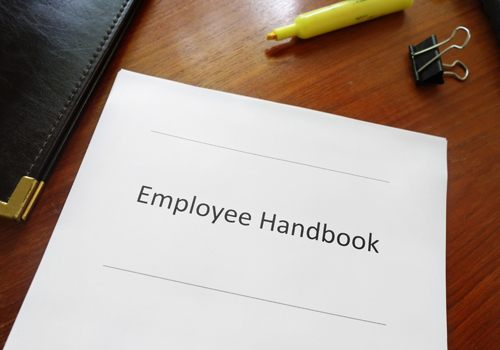Small businesses develop a strategy for compensating employees, in order to best use limited resources. The compensation strategy is how decisions are made to use these limited resources for the purposes of attracting, retaining and motivating employees. As businesses grow and mature, they adjust the methods of compensation and benefits to match the growing organization. Other factors impacting your compensation decisions include industry, location and competition. Compensation is a variable cost because there are many specific rules and regulations that govern how you will be able to pay your employees. Here are some of common compensation questions from small business.
Can I pay all my employees a salary?
No. The Fair Labor Standards Act (FLSA) was enacted back in 1938, and there are still many employers that do not know its provisions. The law requires that employers define the pay status (exempt or non-exempt) for all positions. Non-exempt employees are not exempt from the overtime provision requiring that they receive time and one half for all hours worked over 40 in a work week. Exempt employees are not entitled to overtime. To determine if an exemption is available, you look at the duties. There are four main types of exempt employees (with very specific rules or each): executive, administrative, professional (includes computer professionals) and outside sales. Generally, only exempt employees are eligible to be paid on a salary.
Can salaries be regularly adjusted based on amount of work performed?
No. The Department of Labor defines a salary as a regular, predetermined rate of pay for a weekly or less frequent basis (bi-weekly, semi-monthly, monthly). Currently, the rules require that an exempt employee receive a salary of at least $455 per week, or $23,660 annually, to be classified as exempt. The rules specifically state that the salary cannot be reduced because of variations in the quantity or quality of the work, and the employee must receive a full salary for a week in which any work is performed. However, an employee does not need to be paid for a week, if they are starting or ending employment during the week (pro-rated ok).
Are there maximum hours that an employee can be worked in Florida?
No. The FLSA does not provide a maximum number of hours that can be worked by employees, as long as hours worked over 40 by non-exempt employees are compensated at time and one-half their wage rate. Likewise, Florida law does not address maximum hours. If the employee is under the age of 18, companies must review the federal and state child labor laws, which may restrict the number of hours worked for minors, based on their age.
Can I pay my exempt employees “overtime” for working extra hours?
Yes. The FLSA does not prohibit paying extra compensation or overtime to exempt employees. Some employers choose to pay exempt employees overtime for hours worked beyond 40 in a week, and can do so without losing the exemption. As long as the regular salary is no affected, the extra compensation could be paid at straight time, overtime or any other set rate.
When does travel time need to be paid to employees?
Sometimes. The FLSA rules state that regular home to work travel does not need to be compensated. However, travel during the course of the workday needs to be paid to employees (for instance, making a trip to a supplier to pick up materials). Other special cases that require payment of travel time include: (1) emergency travel from home to work (after hours to address a customer issue), (2) one day offsite assignment (for example a day long training course), (3) travel between job sites, during the normal workday; (4) travel away from home that keeps an employee away from home overnight.
When does employee training time need to be paid?
For non-exempt employees, the wage and hour regulations for determining the compensability of training time applicable to all FLSA-covered employees are set forth in 29 C.F.R. §§ 785.27 through 785.32. Participation in training programs need not be counted as working time if all of the following criteria are met: (1) attendance is outside the employee’s regular working hours; (2) attendance is in fact voluntary; (3) the course, lecture or meeting is not directly related to the employee’s job; and (4) the employee does not perform any productive work during the attendance. See 29 CFR 785.27. FLSA 2009-15 Opinion Letter.
Does time spent completing training “homework” need to be paid?
Yes, according to a Wage and Hour Opinion Letter, if the “homework” is required by the employer and the employee is non-exempt. However, time spent in outside study is not compensable if the studying is not required by the employer. For instance, supplemental after hours reading assignments that are not supervised or tested, and are not necessary to pass the final examination are primarily for the employee’s benefit and may be excluded from compensable hours of work.







